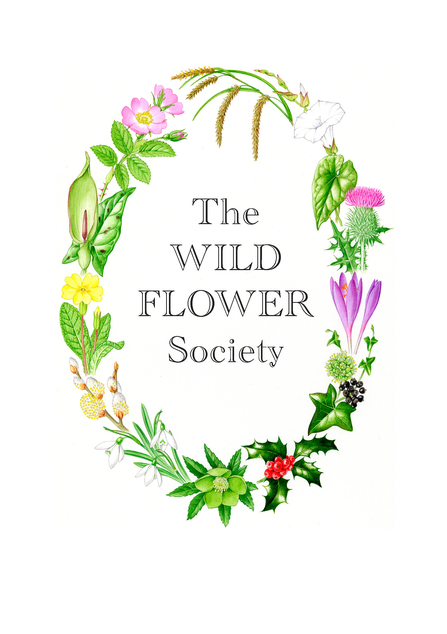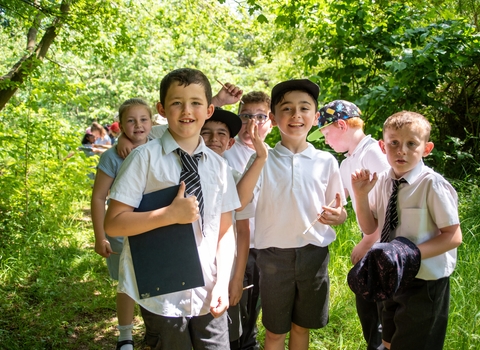This is a list of all the Wild Workshops available at our Centre of the Earth and EcoPark environmental education centres. Workshops cost:
£185 per class for ½ day
For more information and bookings, email education@bbcwildlife.org.uk
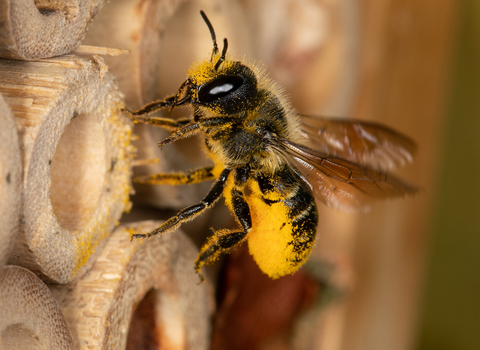
Jon Hawkins - Surrey Hills Photography
Nature Friends
A seasonal selection of nature-based and sensory activities to connect our youngest learners to their natural world. Perfect for EYFS and into KS1, all year round.
Curriculum Links:
EYFS
Communication and Language – New vocabulary
Physical Development including health and self-care – Health and wellbeing, gross and fine motor skills
Understanding the World – Explore and observe the natural world
Arts and design– Be imaginative and expressive

Perfect Ponds
A practical pond dipping session to help children identify and name and classify common animals in their habitats. Food chains come to life by finding out who eats who in our ponds. April to October.
Curriculum links:
All Key Stages: Working Scientifically
Year 1: Animals including humans – Identify and name common animals
Year 2: Living things and their habitats – Identify and name animals in habitats and microhabitats. Describe how animals obtain their food.
Year 4: Living things and their habitats – Identify, group and classify
Animals, including humans – Construct and interpret food chains
Year 6: Living things and their habitats – Classification

Tom Marshall
Marvellous Mini-Beasts
Discover and compare the many minibeasts in our woodland and meadow habitats on your own minibeast safari. May to October.
Curriculum links:
All Key Stages: Working Scientifically
Year 1: Animals including humans – Identify and name common animals
Year 2: Living things and their habitats – Identify and name animals in habitats and microhabitats
Year 4: Living things and their habitats – Identify, group and classify
Year 6: Living things and their habitats – Classification

Habitat Havens
A variety of exploration activities throughout the year to discover habitats and microhabitats and what animals need to survive and thrive. Find out how humans can have a negative or positive impact on habitats.
Curriculum links:
All Key Stages: Working Scientifically
Year 1: Animals including humans – Identify and name common animals
Year 2: Living things and their habitats – Identify and name animals in habitats and microhabitats
Year 4: Living things and their habitats – Identify, group and classify
Year 6: Living things and their habitats – Classification
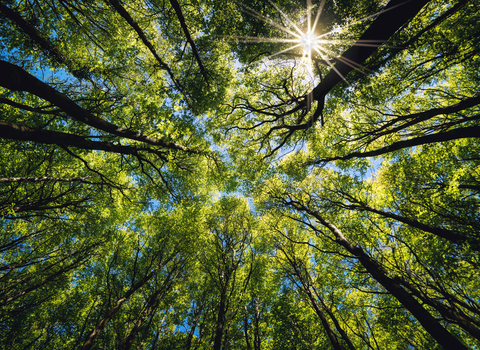
Precious Plants and Terrific Trees
Discover and see the important functions of different plant parts and investigate our vital trees. Curriculum links:
All Key Stages – Working Scientifically
Year 1: Plants - Identify and describe the basic structure of a variety of common flowering plants, including trees
Year 2: Plants - Observe and describe how seeds and bulbs grow into mature plants. Find out and describe how plants need water, light and a suitable temperature to grow and stay healthy
Year 3: Plants - Identify and describe the functions of different parts of flowering plants: roots, stem/trunk, leaves and flowers
This workshop is being kindly supported by the Wild Flower Society.
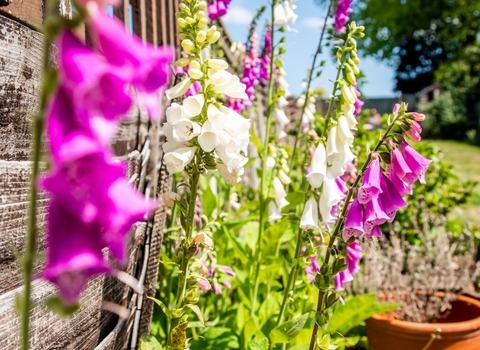
Fantastic Flowers
Identify and name a variety of flowering plants in their natural habitats. Take a closer look inside flowers to uncover their important part in a plant’s life cycle. April to September.
Curriculum links:
KS2 – Working Scientifically
Year 3: Plants - Explore the part that that flowers play in life cycles of flowering plants
Year 5: Living things and their habitats - Describe the life process of reproduction in some plants and animals
This workshop is being kindly supported by the Wild Flower Society.
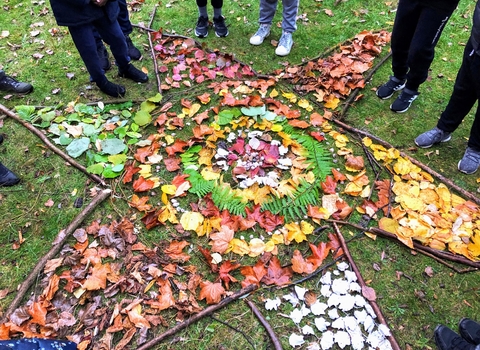
Wild Art
Let your creativity go wild! Forage in nature and find your inspiration to create natural, transient art pieces.
Curriculum links:
KS1: Art - Use a range of materials creatively. Use sculpture to develop and share their ideas, experiences and imagination. Develop a range of techniques in using colour, pattern, texture, line, shape, form and space
KS2: Art -Improve their mastery of art and design techniques, including sculpture, with a range of materials. Learn about great artists, architects and designers in history
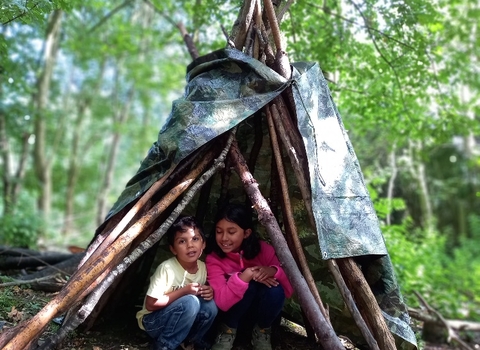
Den Building
Join us for a practical, team challenge workshop. Work together using a variety of equipment to construct a range of shelters for survival in the wild. Gross and fine motor skills merge with communication skills in this fun learning activity.
Curriculum links:
KS2 PSHE- Problem solving, Managing setbacks, Strategies for inclusion, Listen and respond, Discuss and debate constructively.
PE: - Take part in an outdoor and adventurous activity challenge

Orienteering
Orienteering skills for beginners. Set your map, find and draw map features and use your new skills to find a series of markers on your map.
Curriculum Links:
PE KS2 - Take part in an outdoor and adventurous activity challenge
Geography KS2 - Geographical skills and fieldwork. Use maps to locate and describe features studied. Use fieldwork to observe, measure and record the human and physical features in the local area using a range of methods.
